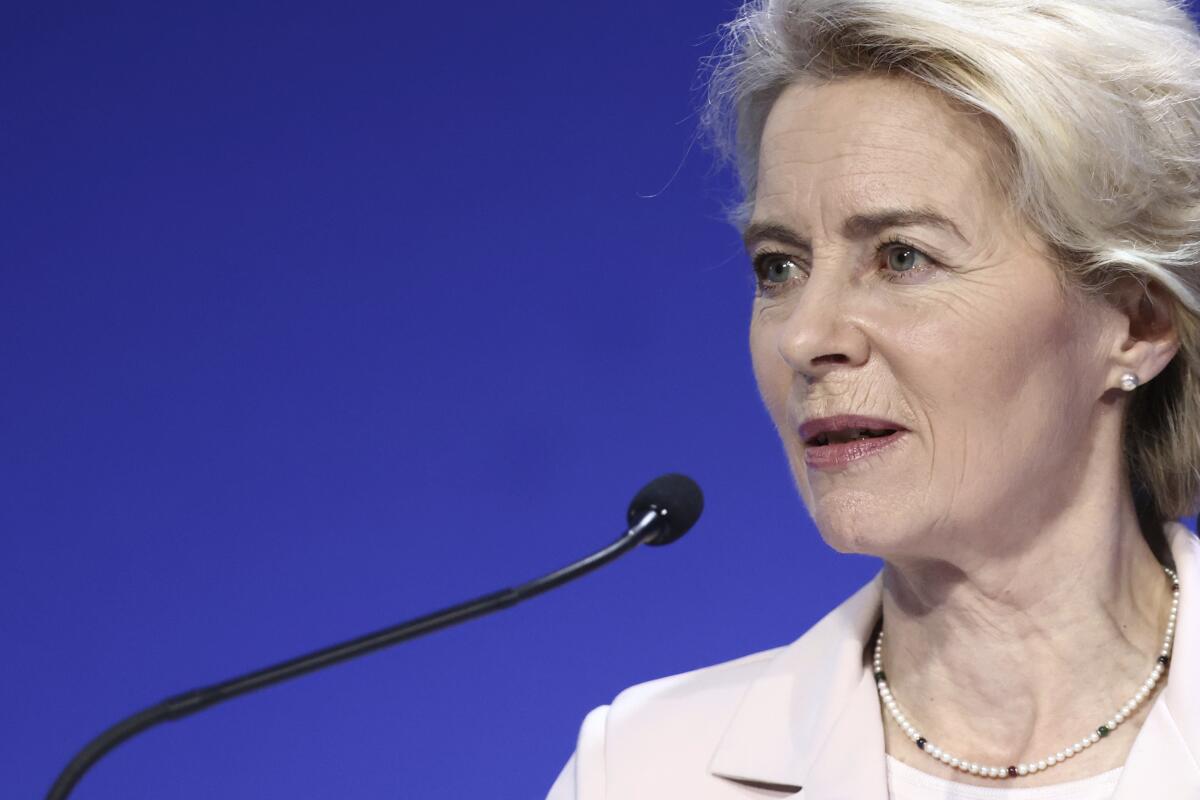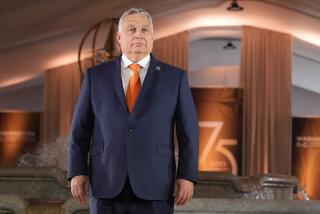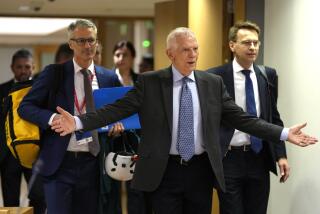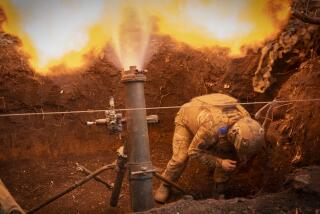EU countries agree on a new package of Russia sanctions over the war in Ukraine

BRUSSELS — European Union countries Wednesday agreed on a new package of sanctions on Russia for its war against Ukraine.
Sweden, which currently holds the rotating EU presidency, said that the package includes individuals to be penalized and measures aimed at countering sanctions-circumvention.
Details of the measures will be unveiled later this week when the sanctions are officially adopted by written procedure.
The EU has previously imposed 10 rounds of sanctions on Russia since President Vladimir Putin ordered his forces into Ukraine on Feb. 24, 2022. Banks, companies and markets have been hit, as well as parts of the sensitive energy sector. More than 1,000 officials are subject to asset freezes and travel bans.
Much work has involved closing loopholes so that goods vital to Putin’s war effort don’t get through.
European Commission President Ursula von der Leyen, the head of the EU’s executive arm, said the new package would “deal a further blow to Putin’s war machine with tightened export restrictions, targeting entities supporting the Kremlin.”
When Russia invaded Ukraine, companies were quick to respond, some announcing they would get out of Russia. Following through hasn’t been easy.
“Our anti-circumvention tool will prevent Russia from getting its hands on sanctioned goods,” she added.
It is the first time that plans have been announced to target trade via other countries, apart from sanctions against Iranians alleged to be supplying drones to Russia.
Past sanctions have been agreed on in just months — extremely quickly for the EU. But new measures are becoming increasingly hard to endorse as they inflict damage on the economic and political interests of some member countries even as they aim for the Kremlin.
Hungary, for instance, had said earlier this week that it wouldn’t allow EU measures targeting Russian state nuclear energy company Rosatom, insisting on the importance of nuclear energy for Europe’s security and environmental goals.
Hungary signed new agreements in April to ensure its continued access to Russian energy, a sign of the country’s continuing diplomatic and trade ties with Moscow, which have confounded other European leaders amid the war in Ukraine.
More to Read
Sign up for Essential California
The most important California stories and recommendations in your inbox every morning.
You may occasionally receive promotional content from the Los Angeles Times.











